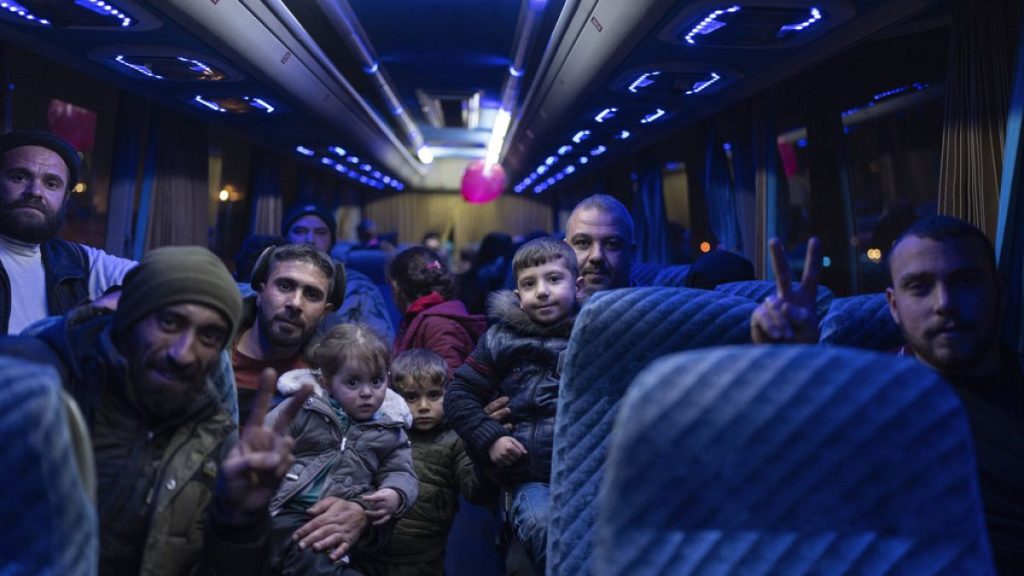Syria stands at a crossroads, its future uncertain after the overthrow of Bashar al-Assad. While optimism for peace and democracy exists, the country’s deep fragmentation presents significant challenges to social and political cohesion. The international community, including the European Union, Turkey, and Gulf monarchies, is engaging with Syria’s new leadership, Hayat Tahrir al-Sham (HTS), to facilitate a peaceful and inclusive transition and prevent another civil war. Rebuilding Syria’s shattered infrastructure is crucial for stability, and massive investment is needed. Turkey, with its established experience in construction and infrastructure projects, is poised to play a vital role in this reconstruction, potentially reshaping Syria and the region.
Turkey’s engagement in Syria is multifaceted, driven by both short-term security concerns and long-term geopolitical ambitions. Eliminating the perceived threat from Syrian Kurdish factions along its border is a primary security goal. More broadly, Turkey aims to solidify its regional influence by becoming the essential partner for the EU in Syrian affairs. This ambition aligns with the EU’s neighborhood policy, which emphasizes regional integration and trade. Turkish infrastructure projects, particularly in transportation, are seen as crucial catalysts for these goals. Turkey’s Transport Minister has announced plans to rehabilitate Syrian ports, airports, railways, and bridges, including sections of the historic Hejaz Railway, a symbolic project connecting Damascus to the wider region and highlighting Turkey’s leading role in the reconstruction process.
Syria’s strategic location, bridging the Gulf and the Mediterranean, makes it a pivotal element in Turkey’s regional aspirations. This position allows Turkey to act as a central hub for trade and connectivity between the Gulf and the Mediterranean, fulfilling its geoeconomic ambitions. However, Turkey faces economic challenges, including hyperinflation and public debt, which could limit its ability to finance this extensive reconstruction. Securing financial support from Gulf countries, particularly Qatar, is therefore essential for realizing these ambitious projects, like the proposed railway network, which are seen as a precursor to greater regional integration.
The Gulf monarchies themselves are investing heavily in railway development, creating opportunities for collaboration and further intertwining regional interests. Saudi Arabia has a comprehensive 30-year rail expansion plan, and other Gulf states, flush with petrodollars, are similarly prioritizing rail infrastructure. This shared interest in rail development creates a synergy with Turkey’s plans for Syria, potentially leading to a connected network spanning the Arabian Peninsula, the Mediterranean, and ultimately linking to the broader India-Middle East-Europe corridor (IMEC). This ambitious vision positions the region as a key node in global trade, competing with China’s Belt and Road Initiative.
The reconstruction of Damascus airport, facilitated by Qatar and Turkey, symbolizes the tangible progress being made and underscores the collaborative efforts between these nations. The airport’s reopening, marked by the arrival of a Qatar Airways flight, signifies the return of international connectivity and lays the groundwork for further economic development. Similarly, the provision of electricity-generating ships from Turkey and Qatar addresses the critical need for reliable energy supply, highlighting the practical steps being taken to restore essential services. These initial projects are crucial for demonstrating the viability of the larger reconstruction efforts and building confidence for future investment.
The international community is keenly aware of the lessons learned from the reconstruction of Iraq, emphasizing the importance of a stable administrative framework and a focus on reconciliation to avoid past mistakes. Relaunching Syria’s administrative machinery and fostering peaceful coexistence are critical for long-term stability and to avoid the pitfalls of dismantling existing structures during this delicate transition. The emphasis on these aspects signifies a more nuanced and cautious approach to reconstruction, prioritizing sustainable development and the avoidance of actions that could further destabilize the country. The overarching goal is to create a stable and prosperous Syria, integrated into the regional and global economy, through careful planning and collaborative international partnerships.


